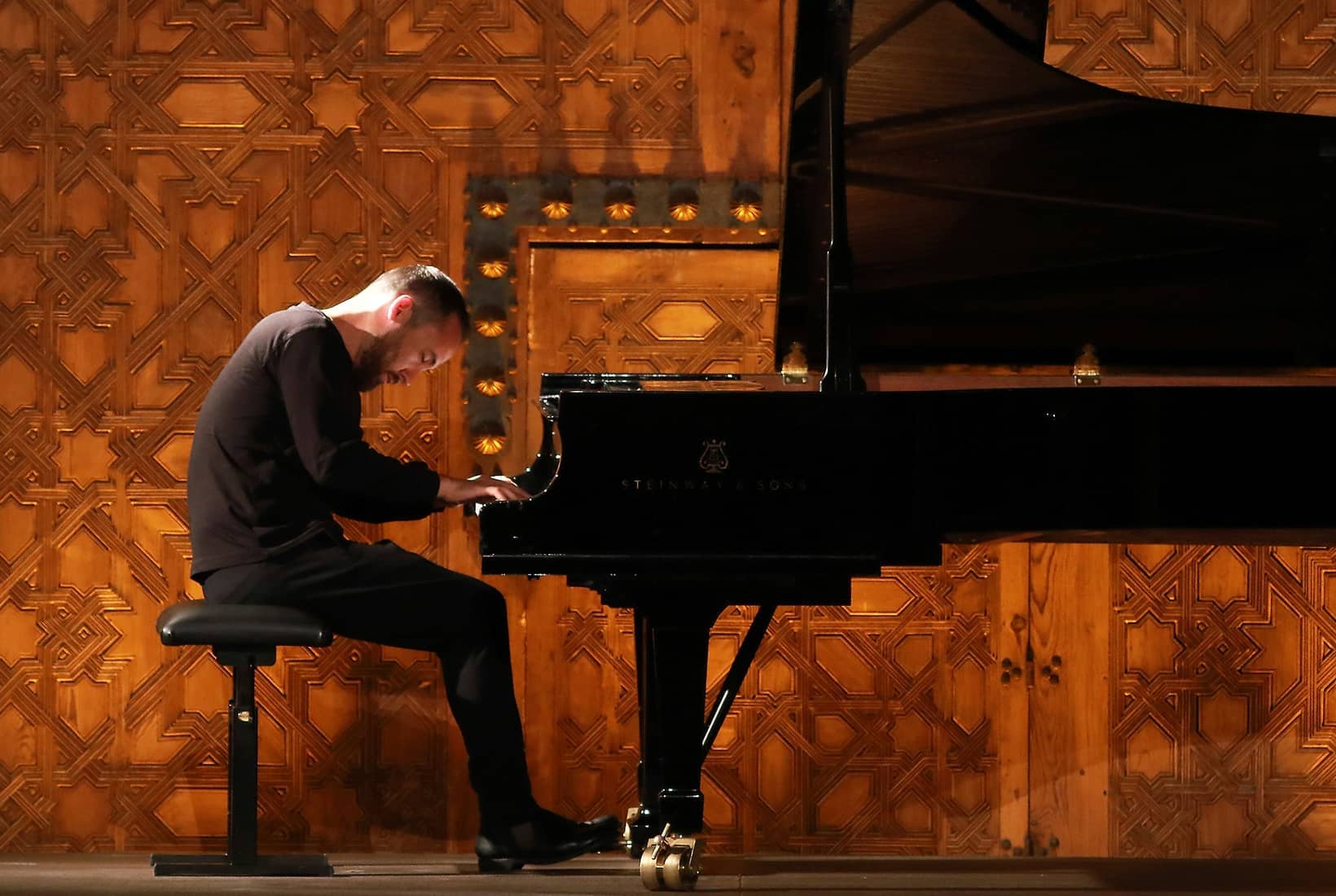Music and politics don’t mix, runs the platitude. Looks a bit tattered now, doesn’t it? For Soviet musicians, of course, it wasn’t a question of whether you were interested in politics. Politics was unambiguously interested in you. Shostakovich wrote his 24 Preludes and Fugues for piano between 1950 and 1951, in the teeth of Stalin’s postwar crackdown, and in adopting the model of Bach, he seems to have been looking for a safe path forward: music that was politically neutral. He dedicated the Preludes and Fugues to the pianist Tatyana Nikolayeva, whose surprise victory at the 1950 Bach competition in Leipzig had been exploited by state propagandists.
Bach himself was a permanent conundrum to the Soviets – that inconvenient fixation with God! – but by 1950, with Leipzig safely behind the Iron Curtain, he was being reinvented as a proletarian genius, oppressed by the constraints of bourgeois religion. In that climate, a Soviet homage to Bach was a reasonably safe gambit, though Shostakovich’s Prelude and Fugues can give the impression (initially, at least) of a composer who’s avoiding eye contact. For the musicologist Richard Taruskin, the whole cycle serves as a ‘spiritual analgesic’.
Shostakovich seems to have been looking for a safe path forward: music that was politically neutral
It’s hardly the most bracing idea to carry with you into a three-hour piano marathon; even when the pianist is Igor Levit. Levit’s reputation – I don’t say cult – has ballooned since he won Gramophone’s 2016 Record of the Year. He’s taken to making Barenboimish pronouncements on the state of humanity, and the Wigmore Hall’s lighting was dimmed right down, as if his aura might evaporate under direct light. The whole pianist–as-priest thing is an acquired taste, and I’ve clung to the memory of the first time I heard his name – about 15 years ago, at second hand from an orchestral player who was open-mouthed with awe after the young (and then unknown) Levit had stepped in at short notice to play a Beethoven concerto.
Awe was certainly one response to Levit’s performance of the Preludes and Fugues; awe at the fierce, forensic concentration that he maintained throughout, and awe at the breadth of colour that he found in this ostensibly plain grey music. He hunched over the keyboard in the gloom, occasionally ending a phrase with a flourish of raised hands. He rose from the piano stool to bring a pile-driver chord smashing down onto the climax of one particularly steely fugue. And deep below it all, over and over again, was the background hum of bass pedal-notes – a favourite Shostakovich texture, and a path to monotony in the hands of an unimaginative performer. Levit’s left hand found (and sustained) countless shades of black, from tear-stained softness to ramparts of polished jet.
Intellectual command is a given with Levit. But what really fascinated was the way Shostakovich started to clamber off the page, encoding a whole history of Russian music in these brief, tightly structured miniatures. Individual preludes evoke the drawing-room melancholy of a Tchaikovsky romance, or the harp-strumming orientalism of the 19th- century Russian nationalists. Fugues build to cascading Scriabin climaxes or spin off into hobnailed waltzes. And then there are the moments when Shostakovich seems to interrogate himself (or his selves): the constructivist bad boy of the 1920s; the confident, doubled-at-the-octave stride of the pre-war Piano Quintet; even (in the E minor Prelude) a pre-echo of the overcast Tenth Symphony of 1953. In Levit’s hands, the Preludes and Fugues weren’t blank sheets but Rorschach tests. He deserved his standing ovation; Shostakovich, even more so.
At the Royal Festival Hall, Vladimir Jurowski seemed pleasantly surprised by the size of the LPO’s audience, though judging from the blinking smartphone screens, many of them will have been there principally to hear Mitsuko Uchida play Beethoven’s Fourth Piano Concerto: a chamber-scaled, intensely beautiful reading, so reserved as to be almost melancholy. Still, London orchestras need more troublemakers like Jurowski, who opened with an unadvertised pair of miniatures by Mauricio Kagel, before proceeding to what he described as the ‘revolting, tasteless, brilliant’ Marche Fatale by everyone’s favourite hairy German modernist, Helmut Lachenmann.
Clearly, a Parental Advisory was required. Marche Fatale startled Lachenmann’s ‘hardcore Helmut’ fanbase when it first appeared in 2017 by sounding (at least in the original piano version) exactly like a cheerful diatonic Marche Militaire à la Schubert. The Fatale bit comes with the orchestral detail – the raspberries, harmonic smears and bilious Wagner quotations that signal Lachenmann’s satirical intent. Back in your box, 19th century romanticism! H.K. Gruber and his pals in the Third Viennese School have been hammering this particular gag for decades now; a high-risk strategy, because if audiences don’t read the footnotes there’s a risk they’ll find it rather fun. If Classic FM put Marche Fatale on heavy rotation, it’d be in the Hall of Fame within a year. And then where would we be?







Comments